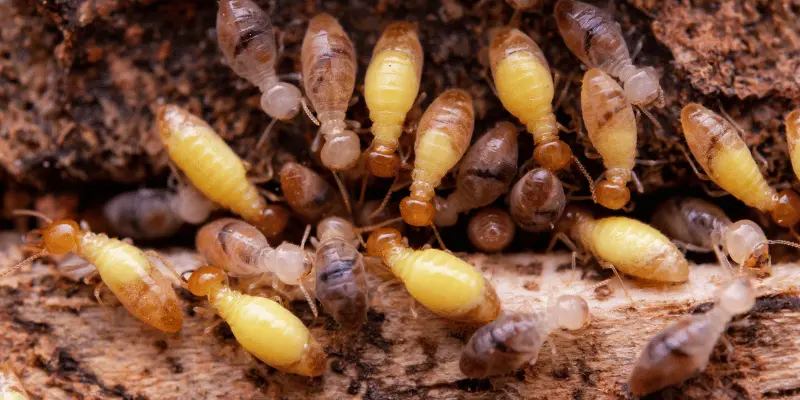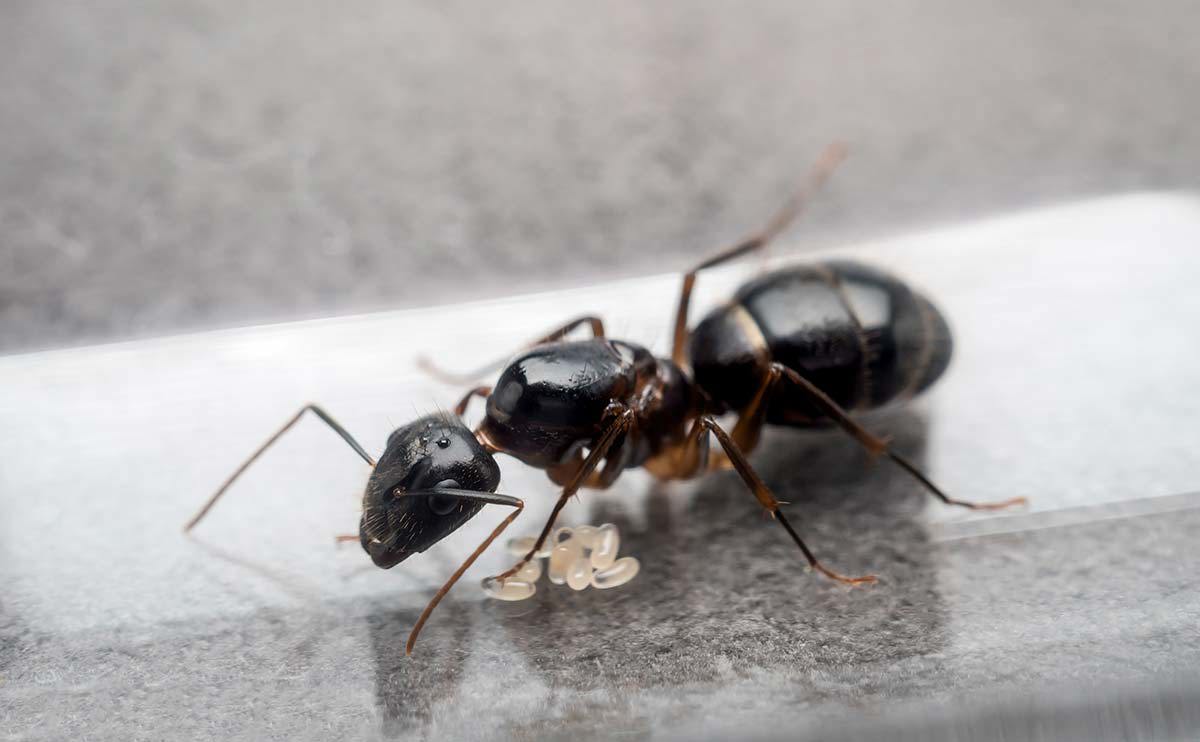Budget Friendly Ant Control Solutions: Maintain Your Room Ant-Free
Wiki Article
Ecological Influence of Parasite Control: Balancing Efficiency With Sustainability
The environmental influence of insect control is a vital problem that needs a fragile equilibrium between achieving effectiveness in handling parasites and ensuring sustainability of our ecosystems. From the usage of dangerous chemicals that permeate into our dirt and water to the unintended consequences on non-target varieties, the repercussions of standard parasite control practices are significant.Hazardous Chemicals in Bug Control
The utilization of harmful chemicals in parasite control poses significant ecological and health and wellness risks that require cautious consideration and mitigation approaches. Pesticides, herbicides, and pesticides are typically made use of to eradicate parasites, yet their widespread application can lead to unexpected effects. These chemicals can contaminate dirt, water sources, and the air, affecting not just the targeted parasites however additionally advantageous insects, wild animals, and people.
To deal with these threats, integrated insect management (IPM) techniques are being promoted as a more lasting alternative. IPM entails a combination of approaches such as biological control, environment manipulation, and the targeted use pesticides as a last resort (ant control wesley chapel nc). By taking on a holistic technique to pest control, we can reduce the environmental and health effects linked with damaging chemicals while properly taking care of pest populations
Influence On Non-Target Types
Thinking about the unintentional effects of insect control methods, the effect on non-target varieties is an important facet that requires thorough assessment. While bug control steps intend to target certain parasites, various other microorganisms in the ecological community may be unintentionally affected. Non-target types, including helpful insects, birds, mammals, and even plants, can endure indirect or direct harm from pesticide applications or biological control methods.Pesticides can have sub-lethal or deadly impacts on non-target varieties. Pesticides designed to combat a particular insect pest may harm pollinators like or all-natural predators such as ladybugs. In addition, chemical deposits can accumulate in the environment, influencing non-target microorganisms in time. In a similar way, biological control agents, if not species-specific, can present risks to unplanned targets, disrupting the eco-friendly equilibrium.
To alleviate the impact on non-target species, integrated parasite administration (IPM) strategies that emphasize a holistic method to pest control are recommended. These techniques prioritize making use of eco-friendly techniques, lessening harm to advantageous organisms while successfully managing pest populations. Performing detailed risk assessments and keeping an eye on the outcomes of pest control efforts are vital steps in protecting non-target varieties and promoting general environment health.
Soil and Water Contamination
Unintended ecological repercussions of bug control techniques prolong past affecting non-target types, with significant implications for soil and water contamination - termite wikipedia reference control. Pesticides, herbicides, and chemical plant foods made use of in bug control can leach right into the dirt and pollute groundwater, presenting a hazard to both earthbound and marine communities.Water contamination is another crucial problem related to pest control methods. Drainage from agricultural fields treated with chemicals can bring these chemicals into nearby water bodies, affecting water organisms and water high quality. Pollutants in water sources can have far-reaching repercussions, influencing not only marine life yet likewise human wellness with the consumption of contaminated water or marine microorganisms. To reduce dirt and water contamination from insect control tasks, incorporated parasite monitoring strategies that prioritize sustainability and minimize chemical inputs are essential.
Air Air Pollution From Pesticide Use
Exposure to air-borne chemicals throughout agricultural applications postures a substantial issue for air contamination control procedures. They can volatilize into the air and form unstable natural substances (VOCs) and other airborne contaminants when pesticides are sprayed onto plants - termite control. These chemicals can add to the formation of ground-level ozone, a major element of smoke that can have harmful results on human health, crop efficiency, and total air top quality. Additionally, pesticide drift, where chemicals are brought by the wind to unintentional areas, can bring about the contamination of nearby ecological communities and water bodies.
Strategies for Sustainable Insect Control
In the realm of farming techniques, implementing sustainable bug control strategies is vital for maintaining environmental equilibrium and safeguarding crop returns. Lasting insect control emphasizes using eco pleasant techniques to take care of insect populaces successfully while decreasing injury to non-target organisms and communities. Integrated Bug Management (IPM) is an extensively adopted method that combines biological, social, physical, and chemical control approaches to attain long-lasting insect management solutions.One key method in lasting insect control is promoting biodiversity within agroecosystems. By enhancing all-natural adversaries of bugs, such as parasitoids and predators, farmers can lower the requirement for artificial pesticides. Plant rotation and diversity are also reliable methods to disrupt pest life cycles and develop less beneficial problems for bugs to flourish. Additionally, making use of pest-resistant plant varieties and using strategies like catch cropping can help in reducing pest pressure without depending heavily on chemical interventions. Ultimately, by integrating these sustainable pest control methods, farmers can attain an equilibrium in between pest administration performance and ecological stewardship.
Final Thought
Finally, the environmental effect of insect control methods must be meticulously thought about to balance effectiveness with sustainability. Hazardous chemicals used in pest control can bring about dirt and water contamination, air pollution, and harm non-target species - ant control services. It is important to execute sustainable parasite control strategies to minimize these negative impacts on the setting and promote a healthier ecological community for future generationsBy embracing an all natural technique to pest control, we can reduce the ecological and health and wellness influences linked with unsafe chemicals while properly handling pest populations.

To mitigate the air contamination caused by chemical use, it is necessary to adopt integrated bug management strategies that focus on the use of non-chemical pest control techniques, such as crop turning, natural killers, and resistant crop varieties. Lasting bug control highlights the use of environmentally friendly approaches to handle pest populaces efficiently while reducing injury to non-target organisms and communities. Integrated Parasite Monitoring (IPM) is a widely taken on method that combines organic, cultural, physical, and chemical control methods to achieve long-term insect administration solutions.
Report this wiki page